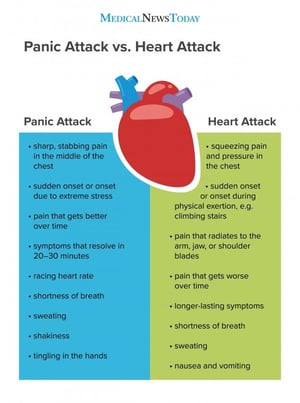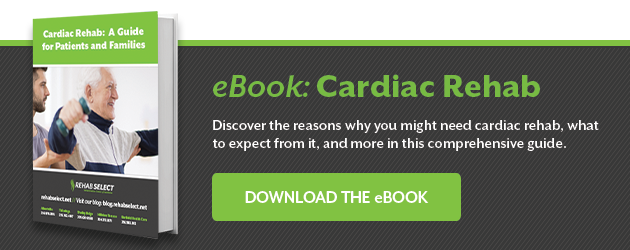
The relationship between anxiety and heart disease is a complex one. And this question is common: Is anxiety bad for the heart? In some cases, anxiety disorders can be one of the causes of heart disease, triggering, or worsening symptoms. In others, heart disease and its symptoms can cause patients great anxiety. And for some patients, it can be difficult to tell whether the symptoms they are experiencing – such as a fluttering or racing heart – are caused by anxiety or heart disease.
In the words of Dr. McCann, the director of the Anxiety Disorders program at John Hopkins Hospital,
“Anxiety disorders can play a major role in heart disease. I believe that a careful look at anxiety would reveal the ways it can severely impact heart disease, both as a contributing factor and as an obstacle to recovery.”
In other words, anxiety and the heart are related. Anxiety can be both a cause and an effect of heart disease.
Anxiety as a Cause of Heart Disease
There is mounting evidence that anxiety can cause heart disease. For instance, patients with generalized anxiety disorder seem to be more likely to experience a heart attack or another cardiac event. According to a report by Harvard University, there are many reasons why anxiety might trigger heart issues.
Is Anxiety Bad for Your Heart?
- Anxiety sends the body into fight or flight mode. Over time, a disproportionate level of stress response causes system inflammation, which in turn can damage the arteries of the heart, increase blood pressure, or disturb the normal rhythms of the heart.
- People with anxiety disorders frequently have lower levels of Omega 3s in their bloodstream, and a shortage of these important fatty acids can be associated with heart problems.
- Anxiety appears to affect the platelets of the blood (tiny blood cells used in clotting), making them more viscous and, therefore, more likely to cause clots and blockages.
- Anxious people are more likely to adopt unhealthy habits, such as smoking, drinking to excess, or overeating, to cope with the feelings of anxiety – and these habits are all associated with higher levels of heart disease.
How Does Anxiety Affect the Heart?
On the other side of the equation, it is very common for patients with heart disease to report feelings of anxiety. This is especially the case with people who have experienced a heart attack.
Anxiety After Heart Attacks
The British Heart Foundation reports that 15% of people experience severe depression after a heart attack, and a further 25% suffer from milder forms of depression and anxiety. Some experience post-traumatic stress disorder, a form of anxiety characterized by flashbacks to the event, and intrusive thoughts about its possible recurrence.
Panic Attacks and the Heart
In some cases, people may struggle to tell the difference between a heart attack and a panic attack. This is not surprising, as the two experiences can be somewhat similar – both often involve a racing heart, shortness of breath, and even chest pain. However, there are also significant differences between panic attacks and heart attacks, as illustrated in this chart from Medical News Today:
 For patients who are at risk of heart attacks or who have experienced a heart attack, it is very important to discuss with a doctor the symptoms that they should watch out for. The Anxiety and Depression Association of America offers the following advice:
For patients who are at risk of heart attacks or who have experienced a heart attack, it is very important to discuss with a doctor the symptoms that they should watch out for. The Anxiety and Depression Association of America offers the following advice:
“For someone who has had a heart attack and also has panic attacks, together we identify, along with their physician, the symptoms that should trigger an immediate trip to the emergency room. Whether it turns out to be another panic attack or not, this person should treat those symptoms as a possible heart attack. He or she is to treat all other symptoms as signs of anxiety or a panic attack, even though they may feel like a heart attack.”
Patients who are experiencing panic attacks should receive a thorough check-up to confirm their heart health. If they have a healthy heart, then the response should be to treat the underlying psychological issues see Treating Anxiety Effects on the Heart below). Panic attacks are both uncomfortable and upsetting and should never be ignored.
Anxiety and Heart Palpitations
Heart palpitations may be caused by anxiety, although they can also be triggered by simple tiredness, caffeine, alcohol, or even overeating. Heart palpitations can feel like a fluttering in your chest, or it may feel like your heart is racing or skipping beats. However, an irregular heartbeat can sometimes have a medical cause. Atrial fibrillation, a heart rhythm disorder that causes the heart’s two upper chambers to beat too fast, can cause symptoms including:
- Heart palpitations or “fluttering”
- A skipped heartbeat that is followed by a “thumping” feeling
- Sweating
- Chest pain
- Dizziness or fatigue
If you experience these symptoms, it is worth discussing them with your physician.
Treating Anxiety Effects on the Heart
Anxiety can be a debilitating condition, but it is eminently treatable. It is especially important to manage your anxiety if you have or are at risk for a heart condition. The treatment you receive for your anxiety will depend on a number of factors – your symptoms, the type of anxiety disorder you have, and other health conditions. However, the primary treatment recommended for anxiety is a combined approach, comprising some form of talk therapy in conjunction with medication. If you decide to take medication, make sure you discuss your heart condition and any medicines you are already taking with the prescribing physician.
Of the many types of talk therapy available, cognitive behavioral therapy (CBT) is one of the most widely used for anxiety and has been proven to be a highly effective form of treatment. Cognitive behavioral therapy is a short-term, goal-oriented psychological treatment, which aims to help people address unhelpful thoughts and behaviors using a systematic approach. According to the Cognitive Behavioral Therapy Center in Los Angeles, CBT can help patients deal with anxiety and make heart-healthy behavioral and lifestyle changes, such as quitting smoking or losing weight.
Managing Anxiety’s Effects on the Heart
As well as receiving medical treatment, there is a lot that you can do yourself to manage your anxiety, whether or not you are also experiencing a heart condition. Regular exercise, meditation, relaxing hobbies, and breathing techniques can all play a role in helping to reduce stress and anxiety.
Stress management is also a major component of many cardiac rehabilitation programs. If you have suffered from a heart attack or are managing a heart condition, you may find it very beneficial to commit to a formal rehabilitation program, both to recover from your existing symptoms and to promote a more heart-healthy lifestyle for the future.
At Rehab Select, we provide cardiac rehabilitation at five Alabama locations. Our expert staff designs is a customized treatment program that will usually include physical therapy, nutritional guidance, and respiratory support. If you are dealing with anxiety, either as a cause of your heart disease or as a result of it, you may also receive counseling and guidance on how to manage stress in your everyday life.
If you’d like to find out more about cardiac rehabilitation in Alabama and how it could help you, please visit our website or contact us.





